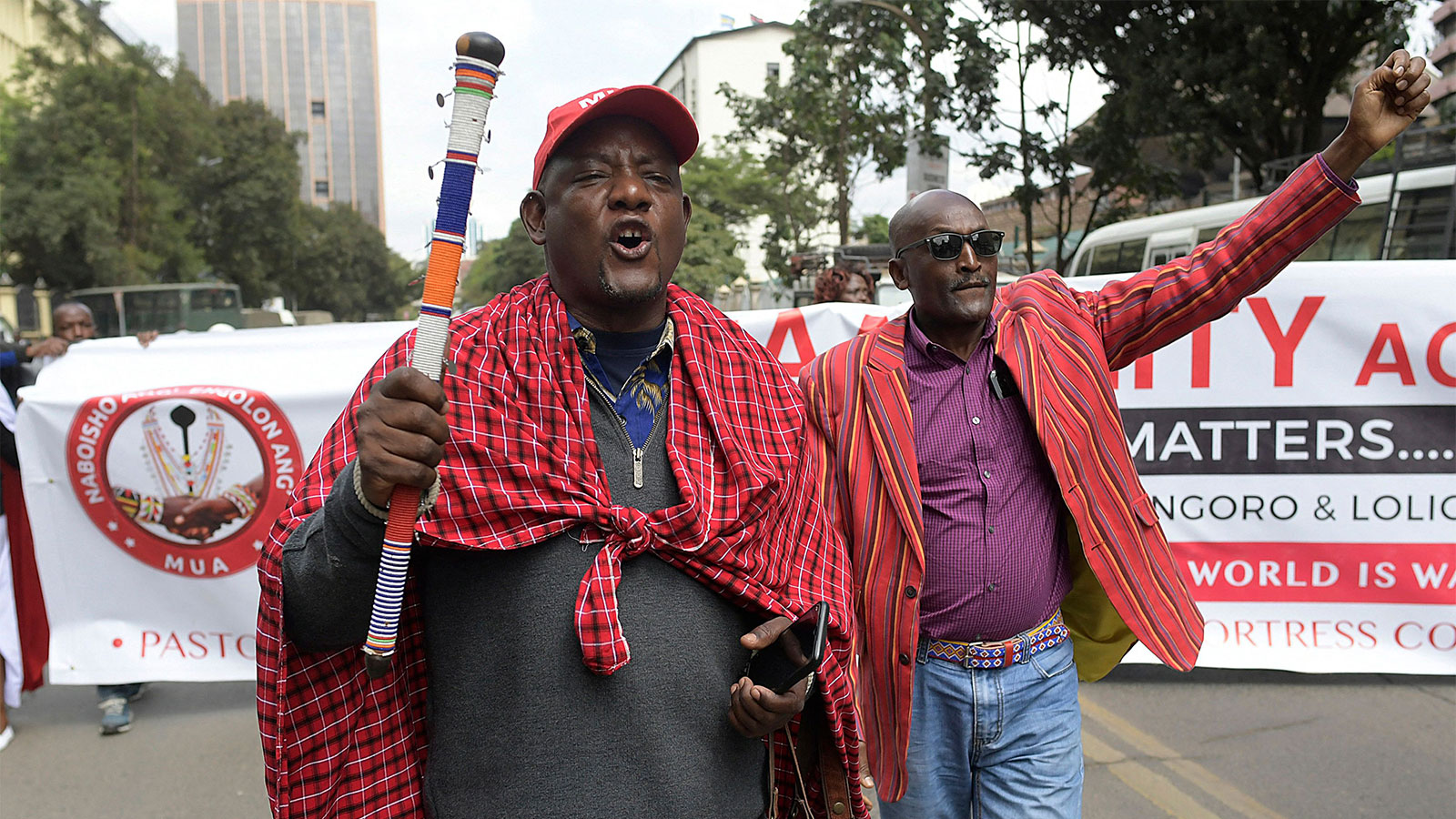Since time immemorial, Indigenous Maasai have called the grasslands of Northern Tanzania home. But for years, the Tanzania government has been trying to convert the region, which is legally Maasai village land, to a game reserve or wildlife management area. In June, tensions came to a head when hundreds of Tanzanian security officers attempted to remove the Maasai from their homelands. Dozens of Maasai were shot or injured, hundreds fled to Kenya for medical treatment, and some were confined to their homes. Samwel Nangiria, a Maasai representative from Loliondo, says the evictions are just the latest example of the Tanzanian government’s disregard for the Maasai’s right to free, prior, informed consent, otherwise known as FPIC. “We are a people who believe in transparency,” Nangiria said. “Anything that is to be done, FPIC has to preside.”
FPIC is a right enshrined in the United Nations Declaration on the Rights of Indigenous Peoples, the International Labor Organization Convention (ILO 169), and other human rights laws. Before engaging in projects on Indigenous land, or that impact Indigenous peoples, countries must obtain the free, prior, and informed consent of the impacted Indigenous communities. But according to a new study, Indigenous peoples in Africa rarely participate in decisions the impact their culture, land use, or the environment. “It is a situation where grave human rights violations are occurring, such as forced dispossession and displacement, which threaten the physical and cultural survival of Indigenous Peoples,” the study reads.
The study was conducted by the International Work Group for Indigenous Affairs (IWGIA), a global human rights organization, and recommends that states, businesses, and international agencies increase their protections for Indigenous human rights and facilitate Indigenous participation in land use decisions in Africa. The study also calls on international conservation organizations to promote and fund Indigenous-led conservation projects and for businesses to create a global fund for Indigenous people impacted by extractive industries. In Uganda, Indigenous communities have insufficient protections from mining interests, and in South Africa, mining companies are not required to secure community consent in their license applications. The report’s authors say strong FPIC laws and implementation would ensure that Indigenous communities have a say before any mining takes place on their lands.
According to the study, only one country in Africa has ratified ILO 169, while more than a dozen countries in Latin America have, leading IWGIA to conclude that countries in Central and South America have made more progress toward implementing strong FPIC laws. For example, in Brazil and Colombia, courts have issued rulings calling for implementation of Indigenous protocols. This progress has also been sparked by Indigenous communities that have created their own FPIC protocols that they then pushed their governments to adopt.
Around the world, Indigenous land is threatened by extractive industries like oil and logging companies, and conservation projects that exclude people from protected areas. Without FPIC protections, Indigenous people are vulnerable to exploitation, eviction, violence, and loss of culture from these activities. Multiple studies have also shown that Indigenous peoples are the best stewards of land for protecting the environment, and a lack of FPIC enforcement can also mean putting the environment and crucial biodiversity at greater risk. “They don’t value our knowledge, they don’t value our wisdom,” Nangiria said.
The report also highlighted the Indigenous Ogiek in Kenya. In June, the African Court on Human and Peoples’ Rights handed down a landmark ruling that ordered the Kenyan government to pay the Indigenous Ogiek people reparations for years of illegal evictions, give them title to their lands, and officially recognize them as an Indigenous peoples. But the African Court has no direct power over the Kenyan government, so the Ogiek have been negotiating with the Kenya government to determine how the ruling will be implemented and developing their own FPIC protocols. “We need them to really respect our traditions, our customs, and the way we do things,” Daniel Kobei, the executive director of the Ogiek Peoples Development Program said.
At the United Nations biodiversity summit, delegates from around the world are negotiating a global conservation plan through 2030. Indigenous leaders are fighting for the final plan to include strong protections for Indigenous rights to free, prior, and informed consent.



